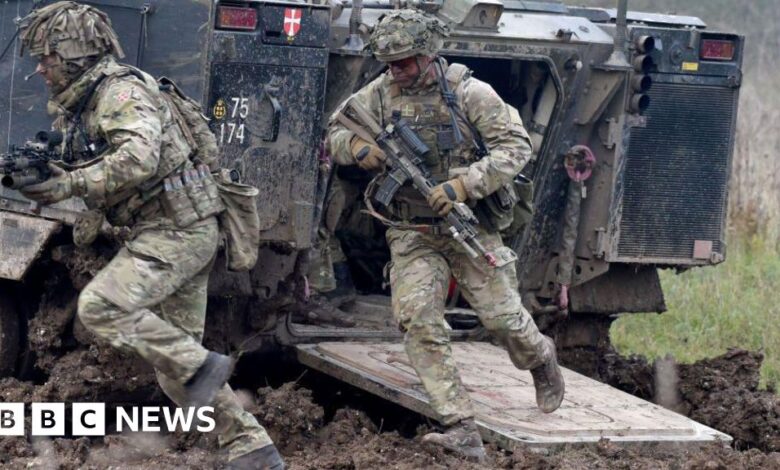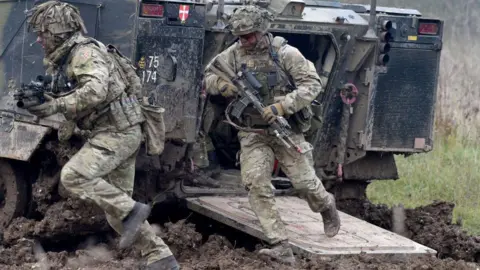Veterans get social housing priority in rule change

 Getty Images
Getty ImagesArmed forces veterans and their families will get priority access to social housing under new rules published by the government.
Councils will have to prioritise veterans for social housing and waive rules requiring applicants show a connection to the local area for veterans’ families, under new guidelines.
The announcement follows Prime Minister Sir Keir Starmer’s promise to give veterans, alongside care leavers and domestic abuse survivors, a “guaranteed roof over their head” in his Labour Party conference speech.
But housing charity Shelter said rule changes would have no impact unless the government addressed a chronic lack of social housing in the UK.
In his speech to Labour’s annual party conference in September, Sir Keir said the issue of homelessness amongst veterans was an “injustice hiding in plain sight”.
He said: “We will repay those who served us and house all veterans in housing need. Homes will be there for heroes.”
In November, the government announced it will spend £3.5m to aid homeless veterans, funding mental health care, job support and independent living through to 2026.
The government does not publish figures on how many veterans are currently on waiting lists for social housing, but in the first three months of 2024, official figures show 650 veteran families in England qualified for social housing to avoid homelessness.
Guidelines published on Wednesday ask councils to set aside housing units and give veterans additional preference.
Any financial compensation received for injuries received during armed service will now be ignored when it comes to means-testing social housing need.
The guidelines state for the first time that those with mental health conditions related to serving in the military – such as Post Traumatic Stress Disorder (PTSD) – should get priority access to social housing.
Councils will also be expected to exempt estranged spouses and partners of service members from local connection rules, particularly in cases of domestic abuse or significant disruption caused by frequent relocations due to military postings.
Previously veterans, and their families, had only a five-year exemption from the local connection test.
Under the new regime, councils must also improve methods to spot veterans among housing applicants.
The move is part of the manifesto pledge to put the Armed Forces Covenant – a promise to treat those who have served with fairness and respect – fully into law.
Polly Neate, chief executive of Shelter, welcomed the changes but said to give veterans proper housing the government would need to build 90,000 social rent homes a year for 10 years.
“It is absolutely right that veterans and everyone facing homelessness are given priority access to a secure, genuinely affordable home,” Ms Neate said.
“Tinkering with the rules for who qualifies for homes where won’t address the fact that there’s just fundamentally not enough social housing available.
“Decades of failure to build enough homes for social rent has left us with a huge shortage, and condemned more than 1.3 million households to years on waiting lists.”




